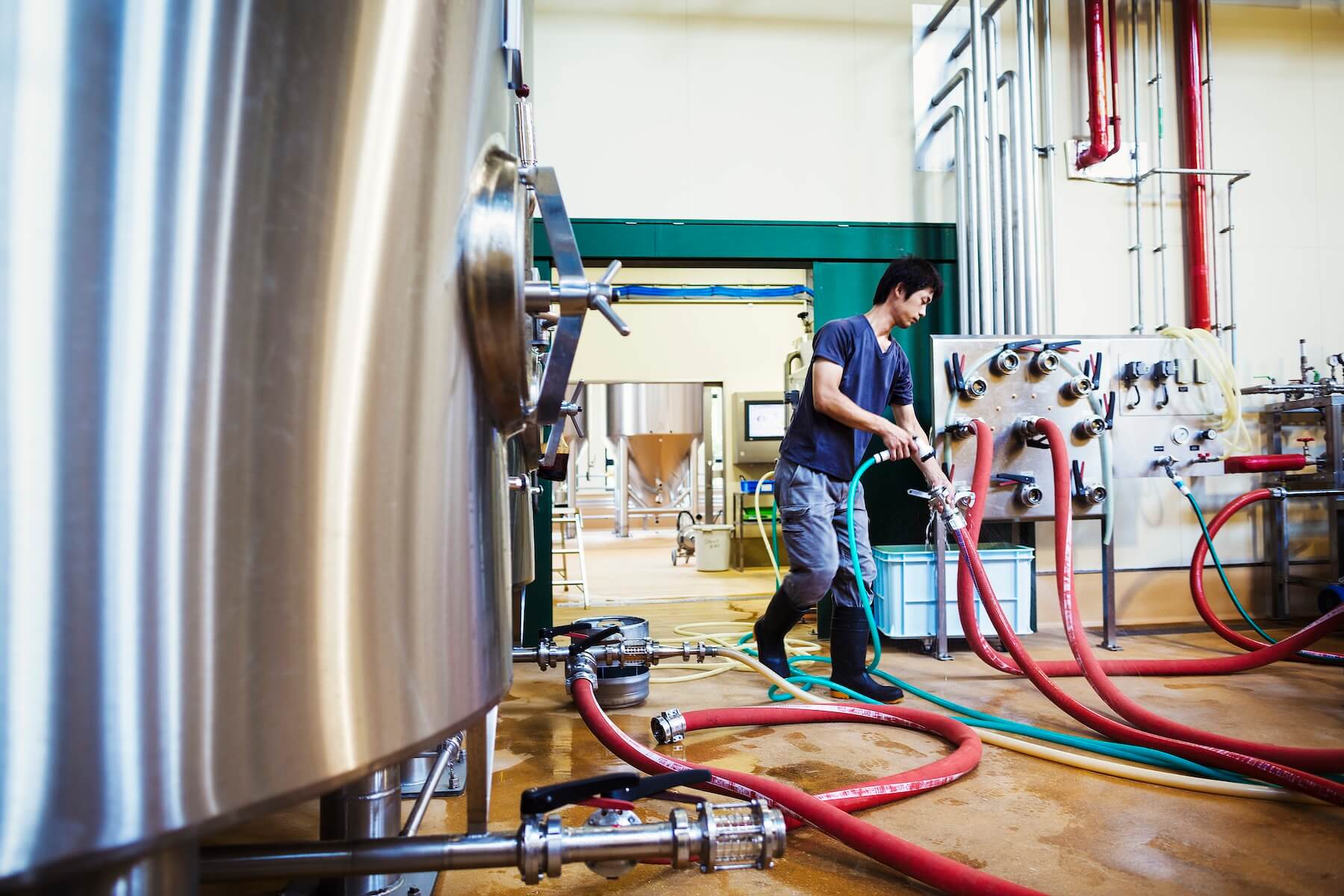You started your brewery with a passion for craft beer, not spreadsheets and inventory tracking nightmares. But as your operation grows, so does the complexity of managing production, compliance, sales and finances. That’s where brewery ERP software can be a powerful tool to bring everything under one digital roof.
But let’s be honest: ERP implementation can feel like trying to brew a triple IPA on your first day in the brewhouse. Costs, technical hiccups and resistance to change can make it daunting. The good news? With the right strategy (and the right implementation partner), you can avoid common pitfalls and turn your ERP investment into a catalyst for your brewery’s efficiency and profitability.
Let’s break down what you need to know about brewery ERP implementation costs, challenges and benefits so you can make an informed decision without second-guessing every step.
What Is ERP Implementation & Why Does It Matter for Breweries?
ERP implementation is the process of integrating an all-in-one system to manage your brewery’s operations — everything from production and inventory to finance and compliance. Instead of juggling multiple disconnected tools, a properly implemented brewery ERP provides a single source of truth, helping you make informed decisions and improve efficiency.
For breweries, ERP software is especially critical in managing:
- Production scheduling: Optimizing brewhouse operations
- Inventory and supply chain: Preventing ingredient shortages and reducing waste
- Compliance and reporting: Ensuring accurate TTB filings and tax calculations
- Sales and distribution: Coordinating orders, deliveries and payments
- Financial management: Tracking costs and profitability down to the pint
A well-implemented ERP can help you cut costs, increase production efficiency, and scale your business without the growing pains. But before you dive in, let’s talk money.
Understanding Brewery ERP Implementation Costs
Like a carefully crafted brew, ERP pricing depends on the ingredients. Here’s what goes into the cost of brewery ERP implementation.
1. Software Licensing & Modules
ERP pricing models vary, but Crafted ERP (and some other leading solutions) charges based on the number of users and modules, not production volume. That means you won’t get penalized for brewing more beer. Costs only rise when you need more user licenses or additional functionality.
Subscription costs depend on the number of users and the specific modules selected.
2. Deployment: Cloud vs. On-Premises
Where your ERP is hosted impacts cost. Cloud-based ERP solutions tend to have a lower total cost of ownership, as they eliminate the need for on-site infrastructure, server maintenance and software updates. On-prem solutions require upfront hardware investments and ongoing IT support, which can significantly increase costs.
Most breweries today opt for cloud-based ERP systems due to their scalability, automatic updates and lower capital expenditures.
3. Implementation & Configuration
Getting a brewery ERP up and running isn’t just about buying the software — you need it tailored to your unique brewery’s needs. Costs here can include:
- Customizing workflows for brewing, inventory and sales
- Integrating with existing systems, including POS, e-commerce and logistics platforms
- Data migration (moving historical data from spreadsheets or old software)
At Doozy Solutions, the company behind Crafted ERP, we have found that on-site presence during cutover (system go-live) is critical for project success. A good rule of thumb is to plan for two people at your headquarters for two days.
4. Training & Change Management
Your team needs to know how to use the system effectively. Training costs vary based on the level of hands-on support your brewery ERP implementation partner provides. Some businesses opt for self-service training, while others invest in guided onboarding to speed up adoption.
Beyond basic training, change management efforts are crucial to ensuring successful user adoption. Employees may initially resist new processes, so budgeting for internal or external change management resources can prevent implementation setbacks. Evaluate your brewery’s needs before deciding on what you perceive as an economic service level. It could come back to haunt you in the end.
5. Support & Ongoing Maintenance
Brewery ERP implementation doesn’t stop at go-live. Many vendors include basic support in their subscription fees, but premium support levels — such as 24/7 access or dedicated account managers — often incur an additional cost.
Customizations and system optimizations should also be factored into long-term ERP expenses.
6. Customizations & Add-Ons
While many breweries can operate within a standard ERP framework, some may require industry-specific add-ons, such as advanced production planning, compliance tracking or multi-category management capability. These customizations can incur significant costs in terms of development time and ongoing system maintenance.
Working with industry-specific ERP software eliminates, or at least reduces, most add-on costs.
7. External Consultants & Implementation Partners
Many breweries lack the internal resources to manage an ERP rollout, so they hire outside consultants. These experts help with software selection, project management, data migration, testing and training. Depending on the scope of work, consultant costs can range from hourly “time and material” rates to fixed project fees.
Given the high rate of failed or derailed ERP implementations (up to 75%, according to Gartner), it’s critical to choose a software implementation partner that knows not just the software but your business as well.
That fundamental premise is at the core of what Doozy offers. You don’t want to be educating your consultants on your business processes and industry best practices at the same time they’re working on your software solution. It rarely turns out well.
The Final Tally
ERP implementation is an investment that pays off in terms of efficiency, compliance and long-term scalability. Planning your budget carefully — accounting for software, training, deployment and ongoing maintenance — ensures you won’t run out of funds before the system is fully functional.
Avoiding Common ERP Implementation Challenges
No company or organization is too big or small to be immune to ERP implementation failure. That real risk comes when you don’t start with the right team and plan in place.
Ask Revlon, whose botched SAP rollout led to delayed financial reporting, lost sales and an investor lawsuit. One of the major causes? A poor implementation partner that underestimated the project’s complexity and scope.
Similarly, Birmingham City Council’s disastrous Oracle migration ballooned from an initial £19 million budget to over £100 million due to excessive customization and poor project management.
A failed ERP project may not just impact your budget — it can devastate your brewery.
Best Practices to Avoid Brewery ERP Implementation Failure
- Choose the right implementation partner: Your ERP provider should have a deep understanding of the brewery industry. Doozy, for example, has former brewers on both its development and implementation teams who tailor solutions specifically for craft breweries.
- Limit excessive customization: Birmingham City Council’s ERP failure stemmed primarily from changing the software rather than adapting its processes. Stick to best practices and only customize when necessary.
- Prioritize change management: Employee resistance can derail even the best brewery ERP implementation. Communicate the benefits early, provide hands-on training and appoint internal ERP champions to guide adoption.
- Ensure accurate data migration: Poor data migration leads to inaccurate reporting and operational issues. Clean up your data before migrating it to the new system.
- Test before full deployment: Implement in phases whenever possible and conduct thorough testing to identify and resolve issues before they impact daily operations.
Is ERP Right for Your Brewery?
If your brewery is experiencing growth pains, struggling with disconnected systems or spending too much time on manual processes, a brewery ERP could be the solution. A well-implemented ERP streamlines inventory, production, compliance, sales and finance — setting your brewery up for long-term success.
Thinking about implementing an ERP? Ensure you’re partnering with a provider who thoroughly understands the brewing industry. The right system, combined with the right partner, will help you grow efficiently without compromising control over your operations.
Your beer deserves better operations. Talk with our brewery ERP experts!







